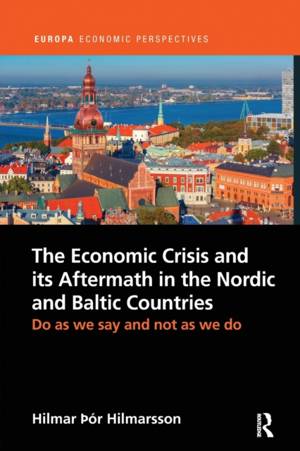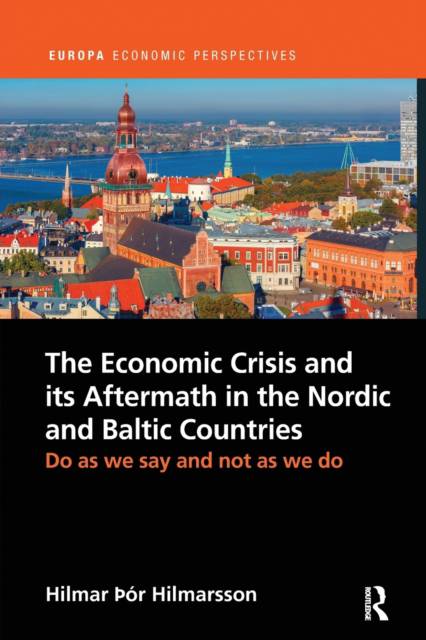
- Retrait gratuit dans votre magasin Club
- 7.000.000 titres dans notre catalogue
- Payer en toute sécurité
- Toujours un magasin près de chez vous
- Retrait gratuit dans votre magasin Club
- 7.000.0000 titres dans notre catalogue
- Payer en toute sécurité
- Toujours un magasin près de chez vous
The Economic Crisis and its Aftermath in the Nordic and Baltic Countries
Do As We Say and Not As We Do
Hilmar þÓr HilmarssonDescription
The Nordic-Baltic region has become highly integrated. The Nordic countries have been successful in balancing competitiveness and economic growth with social inclusiveness, while the Baltic States have grown economically but remain vulnerable with weak social systems and highly unequal income distribution. European Union (EU) membership and inter-linkages with the continental Nordic banking systems appear to have affected the 2008/09 crisis response of the Baltic States.
In spite of their strengths, including their social systems, continental Nordic states are faced with a challenging mix of large, cross-border banks and highly indebted households at a time of rather weak global growth. The Baltic States are challenged by slow economic growth post-crisis, security concerns, and large-scale outward migration of the youngest and most highly educated people.
It is now a decade since the Baltic States were hit by the global crisis. It is time to take stock of their progress and assess their relations with other countries in the region and with the EU. This book focuses on the Baltics and their Nordic partners pre- and post-crisis: successes, failures, lessons learned, and future challenges, examining and comparing the crisis response of these various small states that enjoy different income levels, operate different welfare and tax systems, and seek different levels of integration with the EU.
Spécifications
Parties prenantes
- Auteur(s) :
- Editeur:
Contenu
- Nombre de pages :
- 214
- Langue:
- Anglais
- Collection :
Caractéristiques
- EAN:
- 9780367901264
- Date de parution :
- 26-11-20
- Format:
- Livre broché
- Format numérique:
- Trade paperback (VS)
- Dimensions :
- 156 mm x 234 mm
- Poids :
- 335 g

Les avis
Nous publions uniquement les avis qui respectent les conditions requises. Consultez nos conditions pour les avis.






